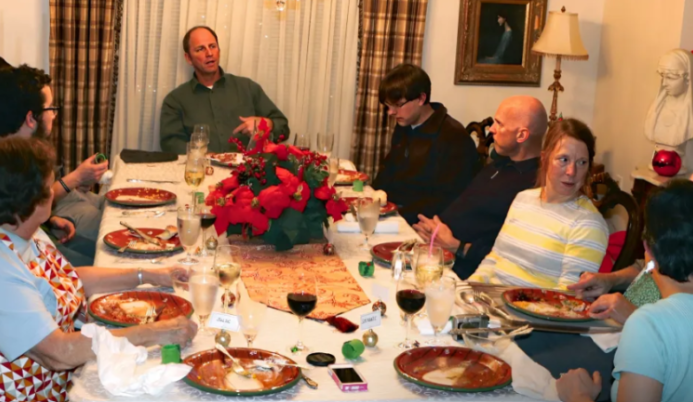In a tale of culinary clashes and cultural compromise, a wife found herself grappling with the aftermath of her husband’s disparaging remarks about her cooking during a family dinner.
The couple hailed from diverse cultural backgrounds, and while the husband lacked culinary skills and didn’t particularly fancy his wife’s native cuisine, she decided to bridge the gap by mastering his favorite dishes.

Initially, the husband appreciated the effort his wife put into preparing meals that resonated with his palate. He encouraged her culinary pursuits and praised her for going the extra mile.
However, the harmony took a bitter turn during a family dinner with the in-laws. The wife, having excused herself momentarily, overheard her husband making derogatory comments about her cooking in front of his family.
Deeply hurt and offended by her husband’s unexpected and harsh criticism, the wife decided she had endured enough. She confronted him, expressing her hurt feelings, and declared that she would never cook for him again.
Storming off, she left the gathering, leaving her husband to later apologize and explain that he was attempting to spare her feelings, though he acknowledged the insensitivity of his words.

The fallout from this incident was profound. The wife, turning to Reddit for support, shared that her decision not to cook for her husband anymore had escalated into a full-blown rift. Her husband, interpreting the situation as a threat, moved in with his father.
Despite attempts at reconciliation, the wife stood firm in her resolve, stating that her husband could stay with his father as long as he wanted, but she had no intentions of resuming her culinary efforts until she felt ready.
The story took an unexpected turn when the wife discovered her post had gone viral. In an update, she revealed that her husband was still living with his father, and public opinion seemed to lean towards the belief that she might have overreacted.
The husband, perceiving the situation as a form of punishment, claimed he was being “starved” and insisted he wouldn’t return until the wife resumed cooking. Unyielding, the wife asserted that her husband could stay with his father, emphasizing that she wouldn’t be swayed until she felt ready to reconsider.

As the rift deepened, the wife grappled with doubts about her decision and pondered whether her refusal to cook for her husband was an overreaction. The incident had become more than a clash of culinary preferences; it had strained the fabric of their marriage, leaving both partners questioning the road ahead.
